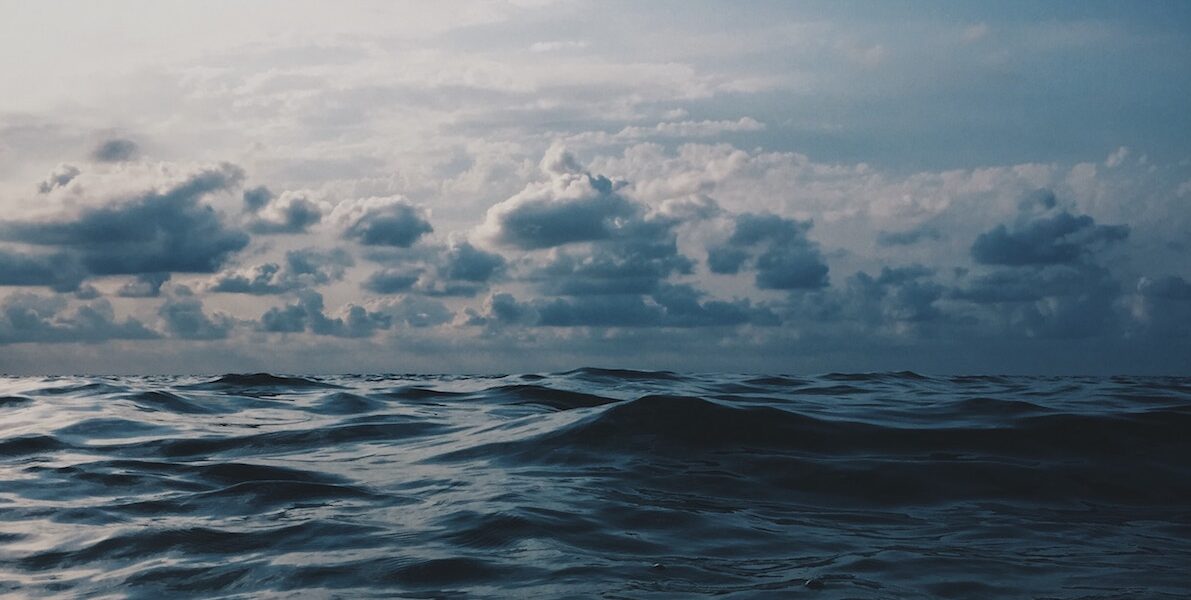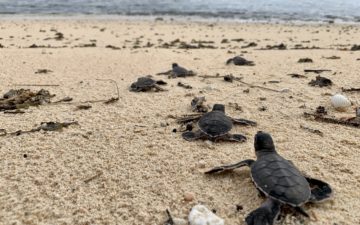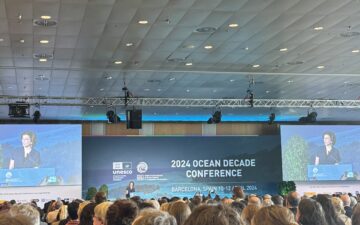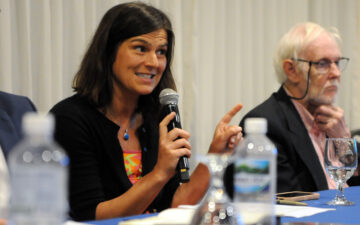by Mark J. Spalding, President
The Ocean Foundation is the first “community foundation” for the oceans, with all the tools of a community foundation and a unique focus on marine conservation. As such, The Ocean Foundation addresses two major obstacles to more effective marine conservation: a shortage of money and the lack of a venue in which to readily connect marine conservation experts to donors who wish to invest. Our mission is to support, strengthen, and promote those organizations dedicated to reversing the trend of destruction of ocean environments around the world.
1st Quarter 2005 Investments by The Ocean Foundation
| Title | Grantee | Amount |
|
Coral Field of Interest Fund Grants |
|
|
| Post Tsunami Coral Reef Assessment | New England Aquarium |
$10,000.00 |
| Coral Reef & Curio Campaign | SeaWeb |
$10,000.00 |
|
Pass-through Grants |
|
|
| For Western Pacific and Mesoamerican Reef | Coral Reef Alliance |
$20,000.00 |
| USA donors gifts to a Canadian Charity | Georgia Strait Alliance |
$416.25 |
| (See discussion below) | Ocean Alliance |
$47,500.00 |
| Ocean conservation lobbying | Ocean Champions (c4) |
$23,750.00 |
| Grupo Tortugero meeting in Loreto | Pro Peninsula |
$5,000.00 |
| RPI Reef Guide | Reef Protection Int’l |
$10,000.00 |
|
General Operations Grants |
|
|
| Special Issue “Oceans in Crisis” | E Magazine |
$2,500.00 |
| Teaching Pack regarding Aquaculture | Habitat Media |
$2,500.00 |
| Mid-Atlantic Blue Vision Conference | National Aquarium Baltimore |
$2,500.00 |
| Capitol Hill Oceans Week 2005 | National Marine Sanctuary Fdn |
$2,500.00 |
New Investment Opportunities
TOF closely monitors the forefront of ocean conservation work, searching for breakthrough solutions in need of funding and support, and communicating the most important new information to you. Last quarter, we presented the Ocean Alliance’s high tech project regarding oil industry noise pollution off West Africa. A donor has given us $50,000 for this project, and challenged us to raise a 2:1 match. Thus, we repeat this project profile below, and ask you to help us meet the challenge presented to us.
Who: Ocean Alliance
Where: Off Mauritania and the West Coast of Africa
What: For an innovative acoustic survey as part of the Ocean Alliance’s Voyage of the Odyssey. This is a collaborative project of Scripps Institution of Oceanography and the Ocean Alliance. This program also has a strong educational component in partnership with PBS. The study will focus on the impacts of the noise from seismic oil exploration and fisheries on cetaceans. The project will use cutting edge technology: Autonomous Acoustic Recording Packages (AARP). These devices are dropped onto the ocean floor and provide continuous recording at 1000 samples per second for months. Data from the AARP’s will be compared with acoustic transects run from the Odyssey using a towed acoustic array with a broad frequency range. The project will be added to the data being collected by the existing Voyage of the Odyssey, which will produce a comprehensive assessment of the abundance and distribution of marine mammals within the survey area, including looking at their toxicological and genetic status.
Why: Anthropogenic sound is created in the ocean both purposefully and unintentionally. The result is noise pollution that is high-intensity and acute, as well as lower-level and chronic. There is sufficient evidence to conclude that high-intensity sounds are harmful and, on occasion, fatal to marine mammals. Finally, this project is set in a remote ocean region where little or no studies of this type have ever taken place.
How: The Ocean Foundation’s Marine Mammals Field-of-Interest Fund, which focuses on the most important immediate threats to marine mammals.
In addition, this quarter we are featuring:
- Union of Concerned Scientists – No sea ice, no polar bears
- Pacific Environment – Sakhalin Island, whales or oil?
Who: Union of Concerned Scientists
Where: Above the Arctic Circle: an eight nation, 4.5 year Arctic Climate Impact Assessment indicates that as the sea ice retreats further from shore, polar bears, seals, and sea lions may be quickly cut off from coastal hunting and nursery grounds. As the sea ice shrinks, krill populations decline, and in turn, so do the seals and other animals that depend on them, and in turn, polar bears have a harder time finding seals. As a result, it is feared that polar bears may disappear from the Northern hemisphere by mid-century.
What: For an effort to bring sound scientific information to policy makers and the public to educate them about global warming.
Why: Implementing readily available solutions to climate change, and slowing the human contribution to carbon loading will give the most resilient species the best chance to survive.
How: The Ocean Foundation’s Oceans & Climate Change Field-of-Interest Fund, which focuses on fostering resilience and finding solutions.
Who: Pacific Environment
Where: Sakhalin Island, Russia (north of Japan) where, since 1994, Shell, Mitsubishi and Mitsui have been spearheading an offshore oil and gas extraction project.
What: For support of a Pacific Environment-led campaign coalition of 50 environmental organizations, which has proposed measures to ensure that energy development will not harm the fragile ecosystems and the rich fisheries off the shore of Sakhalin. The measures also ask for protection of rare and endangered species, including whales, seabirds, pinnipeds, and fish.
Why: Insensitive development will have an adverse impact on the endangered Western Pacific Gray Whale, of which there are just over 100 left; it could wreck the island’s rich marine resources; and a major spill could destroy the livelihoods of thousands of fishermen from Russia and Japan.
How: The Ocean Foundation’s Marine Mammals Field-of-Interest Fund, which focuses on the most important immediate threats to marine mammals.
TOF News
- Nicole Ross and Viviana Jiménez who will be joining TOF in April and May respectively. Having this staff in place prepares us for full-scale, professional support of our donors.
- On behalf of a major donor, we have undertaken a contract to do some research on fundable projects in several South American countries.
- The Loreto Bay Foundation, housed at The Ocean Foundation, expects to reach $1 million in assets this year.
- SeaWeb is making outstanding headway with the Marine Photobank, which was incubated at The Ocean Foundation.
- On March 30th, TOF President, Mark J. Spalding, gave an “ocean ethic” lecture on Addressing Climate Change with Ocean Altering Projects at the Yale School of Forestry & Environmental Studies.
Some Final Words
The Ocean Foundation is increasing the capacity of the ocean conservation field and bridging the gap between this time of growing awareness of the crisis in our oceans and true, implemented conservation of our oceans, including sustainable management and governance structures.
By 2008, TOF will have created an entirely new form of philanthropy (a cause-related community foundation), established the first international foundation focused solely on ocean conservation, and become the third largest private ocean conservation funder in the world. Any one of these achievements would justify the initial time and money to make TOF successful – all three make it a unique and compelling investment on behalf of the planet’s oceans and the billions of people who depend upon them for vital life support.
As with any foundation our costs of operation are for expenses that either directly support grantmaking activities or direct charitable activities (such as attending meetings of NGOs, funders, or participating on boards, etc.).
Because of the added necessity of scrupulous bookkeeping, donor cultivation, and other operational costs, we allocate about 8 to 10% as our administrative percentage. We expect a short term hike as we bring on new staff to anticipate our upcoming growth, but our overall goal will be to maintain these costs to a minimum, in keeping with our overarching vision of getting as much funding out to the field of marine conservation as possible.







